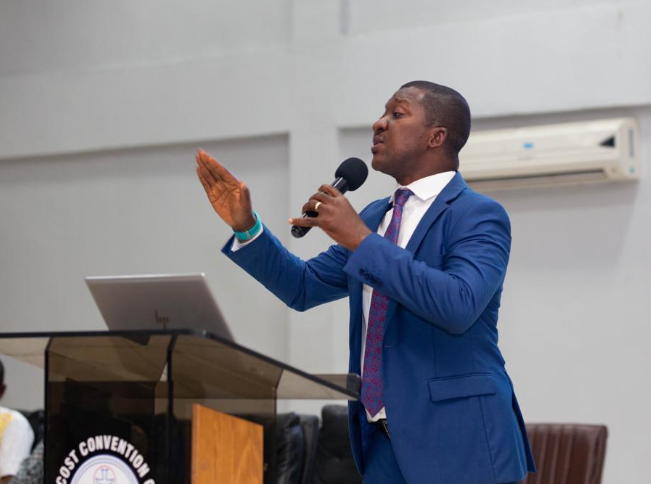The 2025 Money Summit, organized by the Business and Financial Times (B&FT), served as a platform for critical discussions on the pressing issue of pension adequacy in Ghana. Paul Kofi Mante, Managing Director of EDC Investment Limited, painted a stark picture of the current pension landscape, revealing that a mere 4% of Ghanaian pensioners receive more than GH¢5,000 per month. This figure underscores the widespread financial vulnerability of a significant portion of the elderly population, raising alarms about the long-term sustainability and effectiveness of the existing pension system. Mante’s assertion that this situation constitutes a “national crisis” resonated deeply with the audience, highlighting the urgency of addressing this growing concern.
The gravity of the situation is further compounded by the fact that only a small fraction of eligible Ghanaians are even enrolled in the formal pension system administered by the Social Security and National Insurance Trust (SSNIT). With over two million Ghanaians aged 60 and above, the number of individuals actively receiving SSNIT pensions remains below 300,000. This low coverage rate exposes a vast majority of the elderly population to financial insecurity, leaving them reliant on informal support systems or facing potential poverty in their later years. This gap in coverage not only undermines the social safety net but also poses a significant challenge to national development, hindering economic progress and potentially exacerbating existing inequalities.
Mante attributed the low pension amounts to the broader economic realities within Ghana, where prevailing low wages translate directly into meager pension contributions and, consequently, inadequate retirement income. This “low income today equals low pension tomorrow” dynamic underscores the interconnectedness between current economic conditions and future financial security. Addressing this issue requires a multi-pronged approach that not only focuses on strengthening the pension system itself but also tackles the underlying issues of wage stagnation and income inequality that perpetuate the cycle of low pension payouts.
Adding to the complexity of the pension challenge is the increasing life expectancy of Ghanaians, coupled with rising healthcare costs. Retirees are now living longer, often requiring extended periods of financial support without the benefit of a regular salary. Mante emphasized the critical need for individuals to plan for these longer retirement periods, urging them to consider a diversified approach to retirement planning that incorporates both traditional pension schemes and alternative investment strategies. He stressed the importance of financial literacy and proactive long-term planning as crucial tools for securing a comfortable retirement, especially in the context of evolving demographic and economic realities.
Mante’s call for individual action was reinforced by a compelling anecdote about a former mentee, a mathematics teacher, who transformed his financial future through disciplined investing. This individual, initially skeptical of investment opportunities, achieved remarkable success, generating a monthly income of GH¢75,000 through strategic investment decisions, particularly during periods of economic uncertainty. This example served as a powerful illustration of the potential for individuals to supplement their traditional pension income through proactive financial planning and astute investment choices.
The stark realities presented by Mante sparked a strong reaction from the summit attendees, highlighting a growing awareness of the urgent need for both systemic reforms and individual responsibility in addressing the pension gap. The discussions underscored the necessity of a comprehensive approach that involves government policy adjustments, strengthening the regulatory framework governing pension funds, promoting financial literacy initiatives, and empowering individuals to take control of their financial futures. The consensus that emerged from the summit emphasized the critical importance of collaborative efforts between government, financial institutions, and individuals to ensure a secure and dignified retirement for all Ghanaians.














